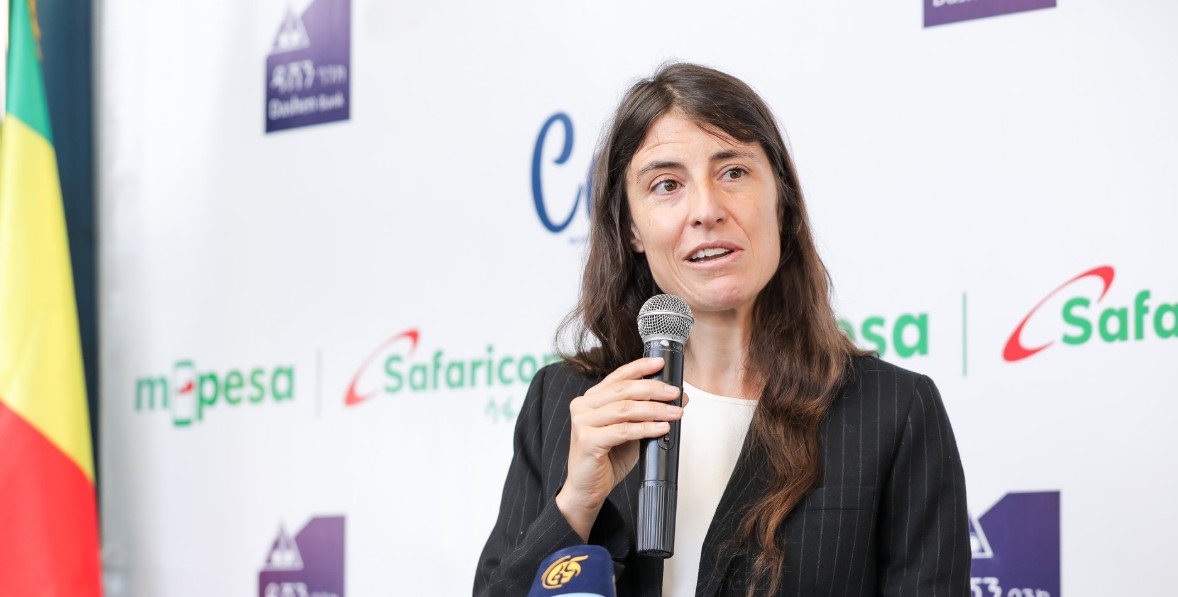Kenya's young women lured into crypto scams through fake investment opportunities - report

Young women in Kenya are being recruited to participate in sophisticated online fraud schemes designed to lure unsuspecting victims into fake investment opportunities before defrauding them of their money.
Kenya’s failure to curb cryptocurrency-related fraud has placed it on the global financial watchdog’s grey list, with new findings revealing that the country has become a base for scams targeting victims worldwide.
A report by the International Justice Mission (IJM), a non-governmental organisation, highlights how young women in Kenya are being recruited to participate in ‘pig butchering’ scams—sophisticated online fraud schemes designed to lure unsuspecting victims into fake investment opportunities before defrauding them of their money.
More To Read
- Court denies IT expert Ndiang'ui Kinyagia’s plea for passport release amid cybersecurity probe
- National Assembly passes Bill requiring cryptocurrency firms to obtain licenses
- Government announces crackdown on rogue agents targeting Kenyans seeking jobs abroad
- Interpol sounds alarm as cybercrime surges in East Africa amid digital boom
- Blogger Maverick Aoko's cybercrime case: Court sets July 7 for prosecution ruling
- Global tech firms drive major overhaul of East Africa's physical security infrastructure
In this scheme, fraudsters take weeks or months to build trust with their targets, often posing as potential business partners, friends, or romantic interests. Once the victim is convinced, they are introduced to a sham investment opportunity, ultimately leading to financial losses.
“The stolen funds are quickly converted into untraceable cryptocurrency and later exchanged for traditional currencies such as the Kenyan shilling, US dollar, or euro through crypto exchanges. The process facilitates money laundering by concealing the origin of the illicit funds,” IJM says.
Kenya’s lack of strict regulations on cryptocurrency transactions has been identified as a key factor enabling these crimes. This regulatory gap contributed to the country being placed on the grey list in February 2024 by the Financial Action Task Force (FATF), a global anti-money laundering body.
Kenya was grey-listed due to the absence of a clear strategy for prosecuting money laundering offences, as well as inadequate investigations and prosecutions of individuals or entities involved in terrorist financing. This came despite conducting several terrorism-related investigations, which created a mismatch when evaluating the country's risk profile.
The largely unregulated non-profit sector also contributed to the unidentified risk of terrorism financing abuse. The National Risk Assessment (NRA) identified fraud, forgery, and drug-related offences as the greatest risks to the country, but recovery from these crimes remained notably low compared to the recovery of misused resources and corruption funds.
Crypto popularity
Cryptocurrencies, which are digital assets not regulated by any monetary authority, have gained popularity in Kenya, but their unregulated use has raised concerns over fraud, terrorism financing, and other financial crimes.
In a bid to address these concerns and exit the grey list, Kenya has been forced to reconsider its previous stance on virtual assets. The government has introduced the Draft National Policy on Virtual Assets (VAs) and Virtual Asset Service Providers (VASPs), which are currently undergoing public participation.
“Priority actions include the completion of a terrorism financing risk assessment and related updating of the national AML/CFT strategies, adopting a supervisory framework for Virtual Asset Providers, and strengthening AML/CFT risk-based supervision of financial institutions and designated non-financial businesses and professions (DNFBPs),” the National Treasury said in the 2025 Budget Policy Statement.
AML/CFT refers to anti-money laundering and countering the financing of terrorism.
The Treasury warns that without regulation, the use of Vas poses risks such as money laundering, terrorism financing, proliferation financing, tax evasion, fraud, cybercrime, weak governance, and consumer protection issues.
"These risks underscore the urgent need for a comprehensive legal and regulatory framework for VAs and VASPs to ensure the safety and integrity of Kenya's financial system," the Treasury said.
The 2023 Geography of Cryptocurrency Report by crypto market analysis firm, Chainalysis, ranks Kenya 21st out of 155 countries on the crypto adoption index and ranks it third overall in terms of peer-to-peer (P2P) exchange trade volume.
Kenya’s regulatory shortcomings were first flagged in the Eastern and Southern Africa Anti-Money Laundering Group’s (ESAAMLG) Mutual Evaluation Report (MER), which found that the country lacked mechanisms to help banks prevent illicit activities involving new financial technologies such as cryptocurrencies.
ESAAMLG, which is affiliated with FATF, had earlier warned Kenya in its second MER in September 2022 about its failure to implement measures to curb money laundering and terrorism financing through crypto transactions.
Although Kenya has been recognised as one of Africa’s key investment hubs for cryptocurrencies, the government has historically refused to acknowledge them as legal tender. The Central Bank of Kenya (CBK) has consistently warned against their use, with an advisory issued in 2015 stating:
“Transactions in virtual currencies such as bitcoin are largely untraceable and anonymous, making them susceptible to abuse by criminals in money laundering and financing terrorism.”
A report by the International Monetary Fund (IMF) released in 2024 revealed that some Kenyan firms were already using cryptocurrencies to pay foreign suppliers, particularly during periods of dollar shortages or a depreciating shilling.
After being placed under observation for a year to address these regulatory gaps, Kenya was ultimately greylisted. This means the country is now under increased scrutiny, a status that could deter investors and affect the credibility of its financial system.
“The country and almost all financial institutions could not provide evidence that they assess risks that may arise due to the development of new products and new business practices, including new delivery mechanisms, and the use of new or developing technologies in relation to new and pre-existing products,” ESAAMLG noted.
With Kenya’s financial sector now under international watch, the government faces pressure to implement robust anti-money laundering measures to restore investor confidence and strengthen oversight of virtual assets.
Top Stories Today














































